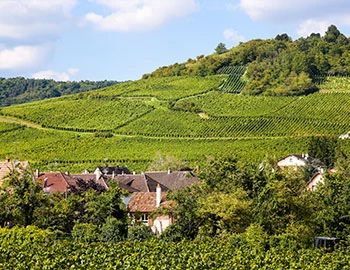
Tarlant Le Triumvirat Brut nature 2009
AOC Champagne, 750 ml

| Grape variety: | Chardonnay, Pinot noir |
| Producer: | Tarlant |
| Origin: | France / Champagne |
Description
«Le Triumvirat» is a first-class vintage champagne that reflects the special characteristics and craftsmanship of the family business Tarlant, run by the siblings Melanie and Benoît Tarlant, two absolute luminaries on the champagne scene. Le Triumvirat takes its name from the three parcels of land from which it originates: Les Crayons, Les Sables and L'Enclume. This Brut Nature, consisting of 58% Chardonnay and 42% Pinot Noir, perfectly embodies the rich terroir of Champagne and shows brioche and flints on the nose, as well as candied citrus fruit. On the palate, it is intense and fresh, with a juicy, slightly chalky texture and a salty minerality. The aging in oak barrels and over 12 years of maturing on the lees contribute to an enormous complexity. This champagne is therefore an excellent accompaniment to white meat and fish dishes with creamy sauces and risotto with seafood.
Celebrate the Art of Sabring!
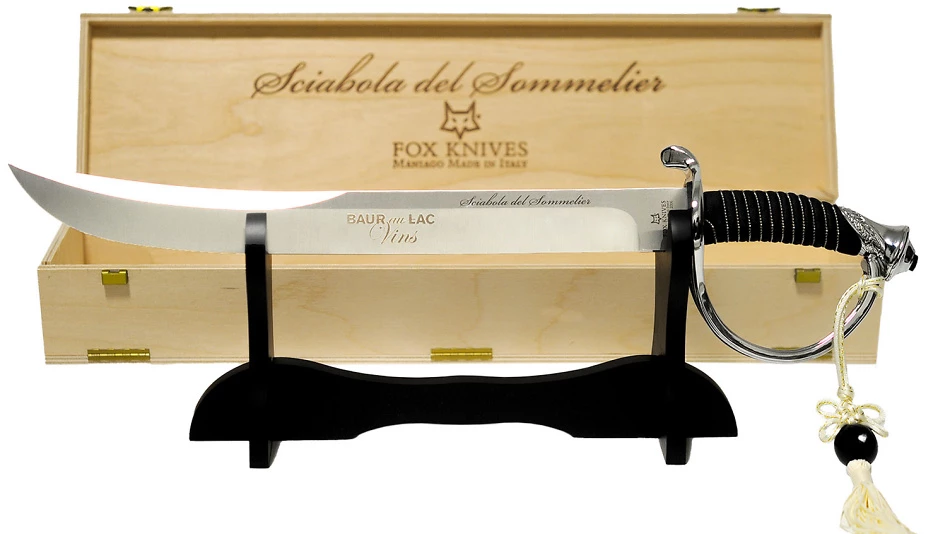
With its elegant design, this champagne sabre is not only an impressive eye-catcher at any celebration and an indispensable tool for stylish sabering, but also the perfect gift for all passionate sparkling wine lovers.
Attributes
| Origin: | France / Champagne |
| Grape variety: | Chardonnay, Pinot noir |
| Ripening potential: | 4 to 18 years |
| Drinking temperature: | 8 to 10 °C |
| Food Pairing: | Tagliatelle al tartufo, Whole baked fish, Succulent chicken breast with cream sauc, Roast veal with morel sauce, Smoked fish |
| Vinification: | bottle fermentation, fermentation with grapes' own yeast, fermentation in wooden barrel, soft pressing |
| Harvest: | hand-picking, strict selection |
| Maturation: | on the yeast |
| Maturation duration: | 153 months |
| Volume: | 12.0 % |
| Note: | Contains sulphites |
Tarlant
The Tarlant family can look back on a long family history, one that can be traced back to 1687. For almost three and a half centuries they have devoted themselves to viticulture in the Marne Valley in the Champagne region. But it was only after World War I that the first hugely successful Champagne Tarlant was created. Today, brothers Jean-Mary and Benoît operate the family-owned company.
With a total of 14 hectares spread over 55 plots, the winery is very small compared to other Champagne houses. Tarlant is a real insider tip, featured on the wine list of some of the world's most prestigious restaurants, and it was not easy for Baur au Lac Vins to come by a few bottles. These sparkling wines are unusual, but all the more fascinating for it.
Vigne d'Antan, Vigne d'Or and La Vigne Royale belong to the winery's limited premium range. The grapes each come from a particular location. The Chardonnay vines for the Vigne d'Antan are authentic, meaning they are ungrafted. The Vigne d'Or is made from 100% Pinot Meunier, which is really unusual in the Champagne region, and can be described as a rarity. La Vigne Royale is a pure Pinot Noir.
The hand-picked grapes are gently pressed in the traditional basket press. The fermentation and maturation of the basic wines are carried out in barrels. Tarlant attaches great importance to a particularly long bottle ageing on the yeast, so the flavours can fully develop. This can easily take seven to ten years. These Champagne wines are always dry and receive little or no dosage.
Even for the Champagne connoisseur, these hidden gems will make for a most unusual discovery!
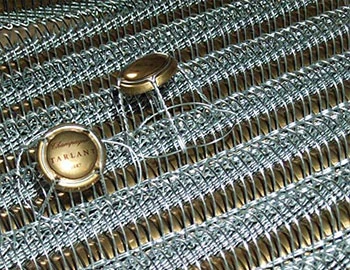
Chardonnay
King or beggar?
Hardly any variety of vine shows such a broad spectrum of quality as the Chardonnay. Its wines range from faceless neutrality to breath-taking class. It is an extremely low-maintenance vine, which explains why it is grown around the world – even in places where it probably should not be. The aromas of the Chardonnay variety are not very pronounced: a bit of green apple, a little hazelnut; in warmer latitudes, also melon and exotic fruits. The wines are often defined by maturing in casks. They develop more or less subtle notes of butter, toasted bread and vanilla. The grapes achieve their highest expression in their region of origin, Burgundy. Its heart beats in the Côte de Beaune: one might think of the plant growth of Meursault or Puligny-Montrachet. With their finesse and complexity, they can survive for decades. Chardonnay also achieves first class in some Blanc-de-Blancs champagnes. It additionally yields great wines in the Burgundian Chablis, and increasingly in Australia and Chile. A simple rule of thumb for pairing with food: When butter and cream are involved, you cannot go wrong with Chardonnay.
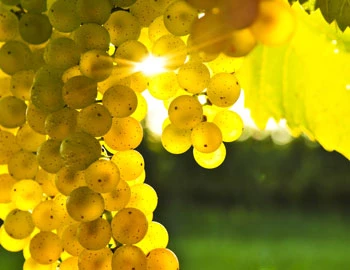
Pinot noir
Blueprint of the terroir
No other variety expresses its terroir as precisely as Pinot noir. It is a sensitive, fragile grape. But when it succeeds, it gives the world some of its very greatest wine plants. It especially excels in Burgundy, where it has been cultivated for at least 700 years. Even in the middle ages, it was considered so precious that it was kept separate from other grapes so as to not diminish its value. The finest examples are delicate and fragrant with aromas of cherries and red berries. With maturity, notes of forest floor, leather and truffles enter as well. An irresistible fruity sweetness still shines through, even after several decades. The Pinot noir does well in cool locations: in Switzerland and in Germany, where it is known as Blauburgunder and Spätburgunder respectively; in Alsace and in South Tyrol, in Oregon, New Zealand and Tasmania. Not least, it yields fantastic champagnes. It is a wonderful culinary companion. With its soft tannins and charming bouquet, it meshes with everything, from Güggeli and cheeses to fried fish.
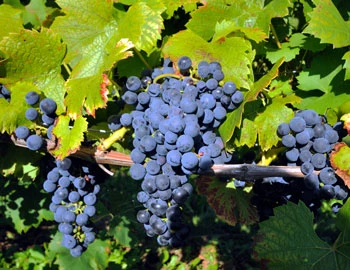
France
France – Philosophy in a bottle
According to French philosophy, wine should be an expression of the soil and climate. They use the word “terroir” to describe this. Terroir makes every wine different, and many especially good. French wine is regarded worldwide as an expression of cultural perfection. The French believe that humans are responsible for the quality of the berries, the vine variety for their character, and nature for the quantity. This philosophy can be expressed succinctly as: “the truth is the vineyard, not the man.”
